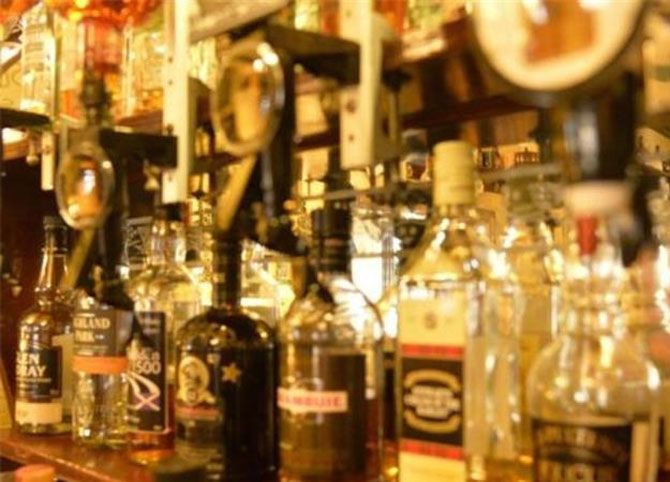 The Maharashtra government is in a 'dilemma' on whether to prohibit liquor sale on Eid-e-Milad, which is falling on the eve of Christmas, days after a delegation of Muslim legislators sought a ban on booze citing religious sentiments.
The Maharashtra government is in a 'dilemma' on whether to prohibit liquor sale on Eid-e-Milad, which is falling on the eve of Christmas, days after a delegation of Muslim legislators sought a ban on booze citing religious sentiments.
"This is the first time that the government has got a request to ban alcohol on Eid-e Milad. No legislator or a private citizen has ever made this demand," Bharatiya Janata Party leader Eknath Khadse said.
"On one hand, we respect the sentiments of Muslims whose religion forbids them from consuming alcoholic beverages, and on the other it is Christmas on the 25th," he said.
"Sentiments of both these religions have left us in a dilemma. Though we have not decided on what has to be done, we will reach a final conclusion in a day or two," he said.
A delegation of Muslim legislators had on Friday submitted a memorandum to Chief Minister Devendra Fadnavis seeking that December 24, which will be celebrated as Prophet Mohammed's birthday, to be declared a 'dry day'.
Senior Congress leader and former minister Naseem Khan, who led the delegation, in a statement had said that they urged Fadnavis to consider their demand, like it is done on Mahavir Jayanti and Gandhi Jayanti every year.
Khan was accompanied by Waris Pathan and Imtiyaz Jalil (both belonging to the All India Majlis-e-Ittehadul Muslimeen) along with Samajwadi Party state president Abu Asim Azmi and Leader of Opposition in the assembly Radhakrishna Vikhe-Patil.











 © 2025
© 2025